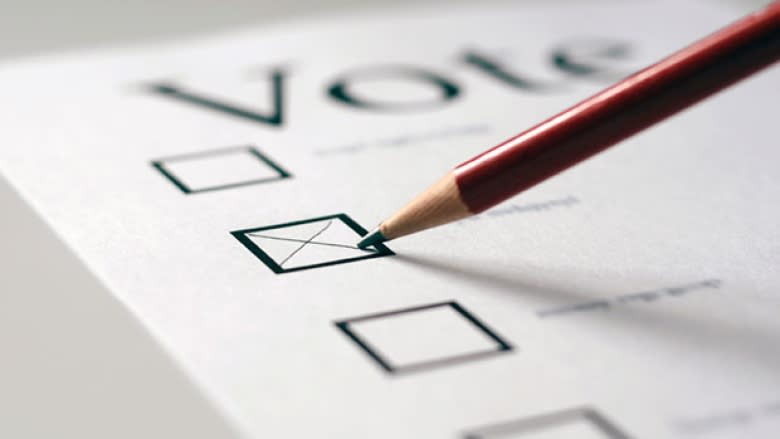Privacy commissioner investigating Elections PEI practice of telling parties who's voted on election day
P.E.I.'s privacy commissioner has launched an investigation into how Elections PEI provides voter information to political parties during an election campaign.
CBC News has learned that Elections PEI has begun providing, upon request, what it calls "real-time" updates to registered parties indicating which voters had cast a ballot on polling days.
The information was provided to parties during the 2017 byelection in the district of Charlottetown-Parkdale.
There was no immediate clarification from Elections PEI as to whether the practice was used during the 2015 provincial election.
Investigation ongoing
Privacy commissioner Karen Rose launched her investigation after CBC asked her whether the practice raised any privacy concerns.
Rose told CBC News her office has contacted Elections PEI regarding two main issues: whether the agency is authorized to disclose that information to parties electronically, and if so, "does Elections PEI have reasonable security measures in place to protect the voter information from unauthorized collection, use or disclosure?"
Information every 15 minutes
The province's chief electoral officer Tim Garrity declined to comment on the issue Monday citing the current investigation.
In a previous interview with CBC he described how the information is delivered to parties.
He said information from the Elections PEI database is sent to parties that request it, "in a secure email, where it is a spreadsheet-style … [including] the elector ID, name, address, and it does state whether or not they have voted … if it was an advance ballot or anything like that, it just lets [the parties] know that they've been crossed off the list."
Parties can request updated information every 15 minutes, "almost on a real-time basis," Garrity said, adding that parties use the information on election day to see whether their supporters have voted.
Privacy concerns
When asked whether some voters might prefer to keep that information private, Garrity said "it doesn't indicate at all who the person voted for, or the fact that they cast a valid ballot."
In the past, political parties relied on information from scrutineers, party volunteers able to be present at every polling station, who would create their own records of who voted and share that with their party.
In response to a previous privacy complaint from a voter, Rose ruled in 2007 that election officials are allowed to share the names of those who vote at a polling station with the party scrutineers stationed there.
However, Rose said circumstances have changed now that the information is provided to parties electronically.
Red flags
Sharon Polsky, president of the Privacy and Access Council of Canada, said providing more personal information on voters to political parties raises red flags, especially when in P.E.I. and elsewhere, those parties are not covered under privacy legislation.
"There's been recommendations from coast-to-coast-to-coast for years that political parties ought to be required to comply with access and privacy laws, but of course the political parties, the legislators are the ones who would be subject … to those laws and they're reticent to do that."
Polsky said she's not aware of any other jurisdiction providing information to parties on election day on who has voted, though she said some other jurisdictions provide that information in reports up to a month after an election is held.
"It makes me wonder why is the elections office providing this in real time?" she said, adding that the move seems to put the interests of political parties ahead of individual voters.
'A more efficient way'
But the parties themselves said the exchange of information serves both politicians and the people who elect them.
"Receiving up-to-date information from Elections PEI helps to ensure volunteers don't spend time and energy contacting people who have already voted, and from the voter's perspective helps protect against their time from being unnecessarily interrupted," said Scott Barry, president of the P.E.I. Liberal Party.
Green Leader Peter Bevan-Baker said his party used the information during the November 2017 byelection in Charlottetown-Parkdale, which the party won.
"It was basically a more efficient way of gathering the same information that scrutineers would have gathered in person at the polls," he said, adding that he didn't think it likely there would be any privacy issues, but that he would welcome the guidance of the privacy commissioner on the matter.
More P.E.I. news




